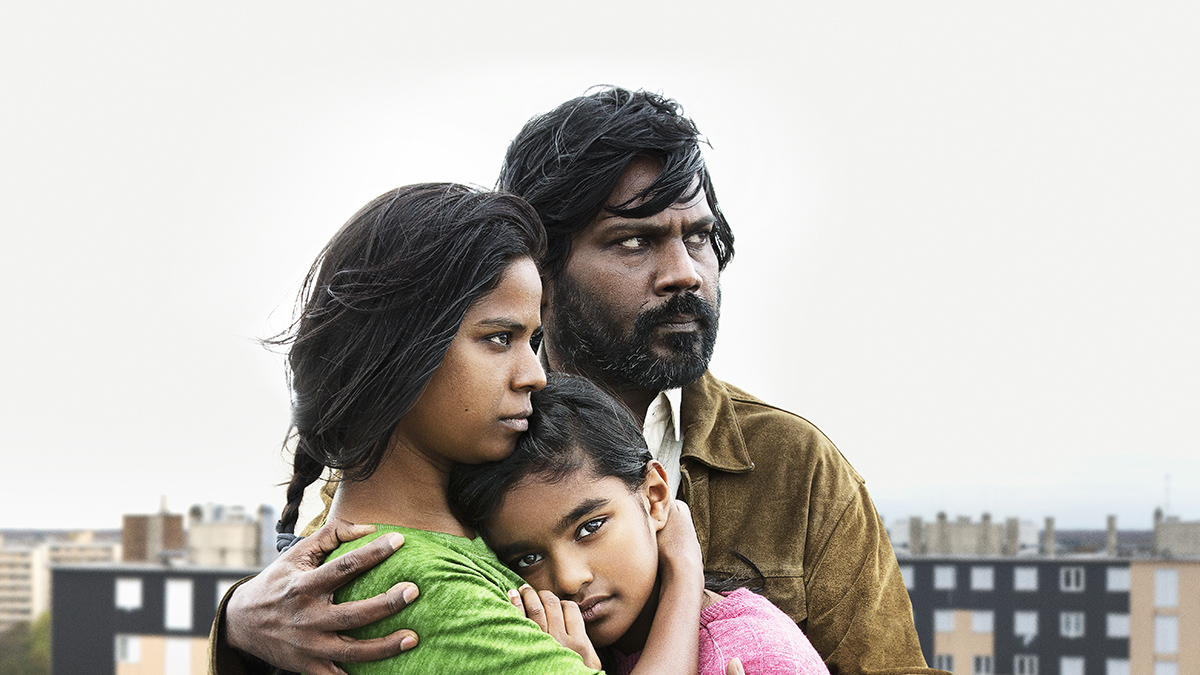Jacques Audiard on his passion for film
The director of the Palme d’Or-winning Dheepan explains why his life has always circled around cinematography

A free daily email with the biggest news stories of the day – and the best features from TheWeek.com
You are now subscribed
Your newsletter sign-up was successful
Above: a still from Dheepan
If I didn't make films, I wouldn't know about much. I wouldn't really live. Film-making is my way of finding out about things. I don't make documentaries, so thinking about film takes me into places I wouldn't otherwise go. I think cinema has to be about something and it has to let you learn things. It can't just be entertainment, although of course that doesn't mean films can be boring. I write my own scripts and each script takes me what seems forever to write – up to a year and a half - so I spend a lot of time randomly thinking what should come next. Choosing or not choosing a subject seems wholly accidental.
All my characters are in the process of becoming something. In an early film, I followed my hero as he invented his own life by telling lies about a heroic past as a member of the resistance. As we film-makers do, he comes to believe in his own fictions. The main character of A Prophet starts off as a hopeless case: a North African in a French prison. What could be more banal – or more hopeless? You think he won't survive in the prison environment. As he learns, however, he acquires wisdom even as he becomes more brutal. He becomes someone remarkable. The heroine in Rust and Bone [played by Marion Cotillard] trains killer whales, and she has her legs amputated after an accident. The male character is a drifter, a violent man who works as a bouncer, and then fights bare knuckle for prize money. But both of them change; they become different people. My films have no political messages. I want people to experience emotions – of hope and love and melodrama.
The Week
Escape your echo chamber. Get the facts behind the news, plus analysis from multiple perspectives.

Sign up for The Week's Free Newsletters
From our morning news briefing to a weekly Good News Newsletter, get the best of The Week delivered directly to your inbox.
From our morning news briefing to a weekly Good News Newsletter, get the best of The Week delivered directly to your inbox.
I've always loved films but my tastes change, depending on what I am trying to do with my own. Years ago, I watched The Sorrow and the Pity, Marcel Ophuls's documentary about the Occupation, more than ten times. And there was a time when I was crazy about Louis Malle's Lacombe Lucien, also set in the 1940s Occupation. I was thinking about France in those years. Even when I'm really enjoying a film, I'm always asking questions. Not: "Could I do this?" because most likely I couldn't and won't. Instead, I ask: "Is that what you can do with a film?"
I can only work in a place I know. Something is happening in France, in Europe – in Britain, too, I would think: people talk about "immigration" as if it's just a social problem and that doesn't interest me. But our lives are being changed by the foreignness of lives around us and that does interest me.
I also don't enjoy so-called "international" films. In the 1970s [in France], you could see British, Spanish, French or German films. They were subtitled. But people don't like subtitling now. They want the experience of film to be undemanding. So you have remakes. I couldn't remake a film. Films are my life and I cannot go back over my life. You can't relive things.
JACQUES AUDIARD has twice won both the César Award for Best Film and the BAFTA Award for Best Film not in the English Language, for The Beat That My Heart Skipped (2005) and A Prophet (2010). Dheepan won the Palme d'Or at the 2015 Cannes Film Festival. It tells the story of three Tamil refugees who flee civil-war-ravaged Sri Lanka for France, in the hope of reconstructing their lives. The DVD will be available from 8 August
A free daily email with the biggest news stories of the day – and the best features from TheWeek.com
-
 Trump touts pledges at 1st Board of Peace meeting
Trump touts pledges at 1st Board of Peace meetingSpeed Read At the inaugural meeting, the president announced nine countries have agreed to pledge a combined $7 billion for a Gaza relief package
-
 Britain’s ex-Prince Andrew arrested over Epstein ties
Britain’s ex-Prince Andrew arrested over Epstein tiesSpeed Read The younger brother of King Charles III has not yet been charged
-
 Political cartoons for February 20
Political cartoons for February 20Cartoons Friday’s political cartoons include just the ice, winter games, and more